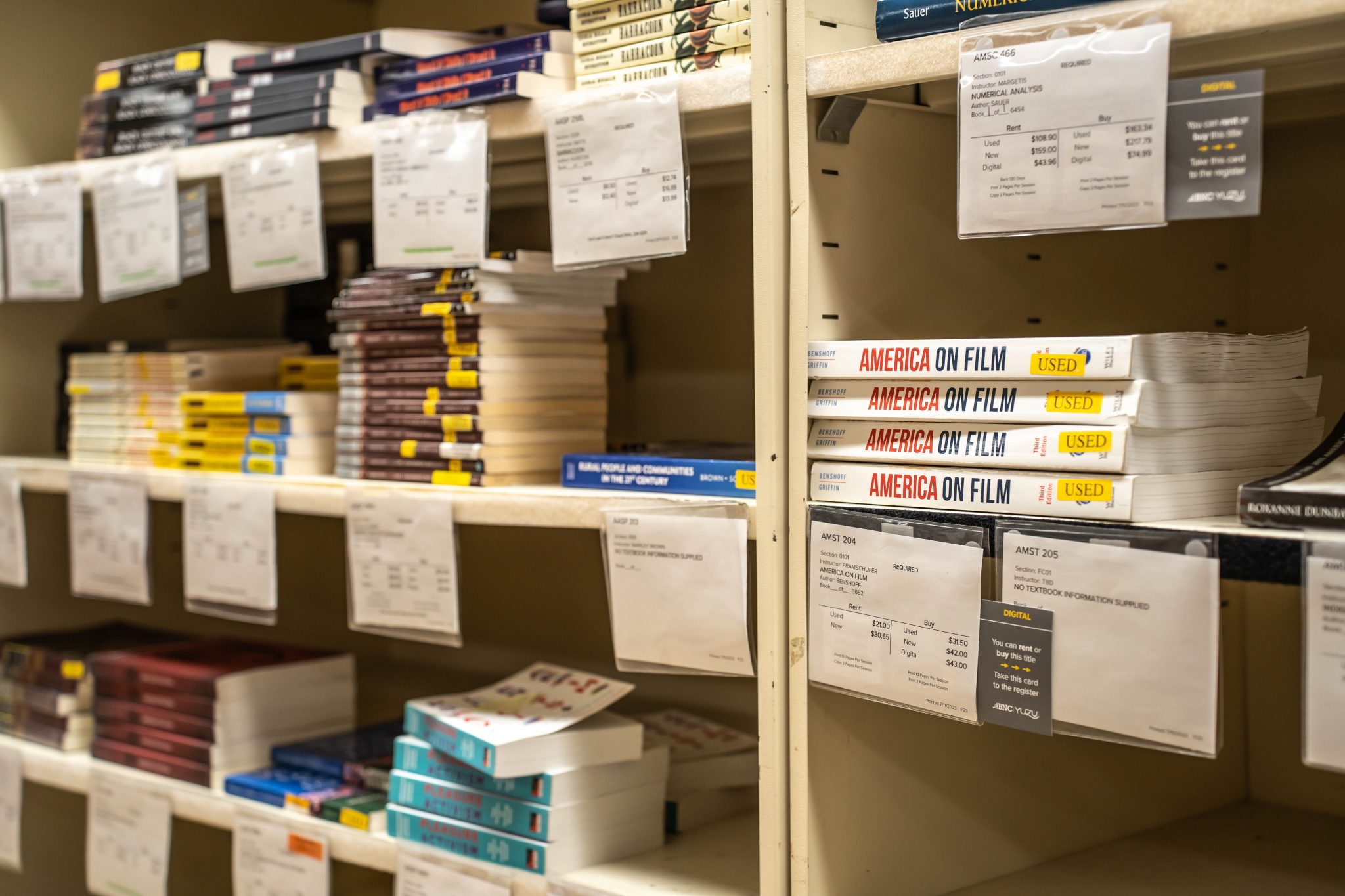The University of Maryland SGA plans to make educational materials, such as textbooks and financial literacy resources, more accessible to students to decrease financial stress in the 2023-24 academic year.
With some textbooks costing upwards of $300 at this university’s bookstore, the Student Government Association’s academic affairs committee hopes to address these rising costs through textbook drives and open educational resources.
Edi Ibok, a freshman computer science major, is taking Calculus I this semester and feels the current priciness of textbooks is unreasonable for students.
“If I didn’t have other sources I could get this from, I would be looking at $300 or $200 in textbook costs,” Ibok said. “That is ridiculous.”
To address these concerns, Aiden Wechsler, the director of the SGA’s academic affairs committee, is focused on alternative textbook sources for students.
Wechsler, a senior government and politics major, said the committee is advocating for professors to provide open educational materials, such as free readings. He also said the committee will focus more on promoting textbook drives to allow students to donate textbooks that they no longer need.
“We are taking a lot of different approaches to it this year with both recycling and advocacy,” he said.
[UMD sexual assault awareness group’s chalk messages met with mixed reactions]
Jackson Durbin, a freshman mechanical engineering major said he gets most of his textbooks from family members and online sources. He believes the new initiatives would be a helpful alternative.
“It’d be nice to be able to have another way to get textbooks without racking up the costs because with the couple of textbooks I have purchased through the school directly, it does add up very quickly,” he said.
Wechsler added that he is looking to work with this university’s registrar’s office to provide students with textbook prices before they register for a course.
Improving education related to financial literacy is also a priority for the academic affairs committee.
SGA president Alexandra DeBus, a senior biochemistry major, emphasized that one of the committee’s goals is to provide students with more financial literacy resources and boost programs that are already in place.
“[These initiatives should] ensure that students have accessibility to this material and feel that they are best prepared for life after graduation,” DeBus said.
All students should have easy access to financial literacy resources, Ibok added.
To make this education more accessible for students, Wechsler called for more financial literacy courses and guest speakers at this university.
[September heat wave leaves UMD students without AC uncomfortable]
The committee is also hoping to increase awareness of peer mentorship opportunities on campus. Currently, some departments and living-learning programs at this university offer peer mentor experiences to students. This university also operates an Academic Peer Mentoring Program, which integrates students into certain classes and research settings each semester to assist student learning.
Ibok supported expanding peer mentorship and emphasized that receiving guidance from his friends who have already taken his Calculus I class has been helpful in learning the content.
To improve this university’s peer mentorship, Wechsler wants to make it more useful and relevant to students.
“Mentorship is definitely something that students really want to see on campus,” Wechsler said. “How can we make the peer mentor program more useful? How can we make it more relevant and how can we make sure that more students are utilizing it as a successful resource?”



